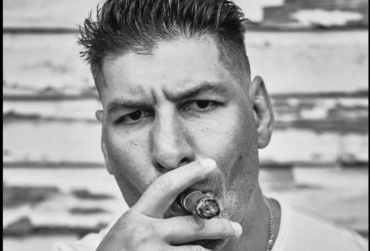
This Hasidic Woman Created A Curriculum To Teach Children How to Regulate Their Emotions
Zipora Gordon is not your typical Skvere Hasidic woman. Though she was born and raised as one of ten children in New Square (where she still lives today), Gordon chose an unusual career path. She is an educational consultant and a certified play supporter who teaches children to be in touch with their emotions and to emotionally regulate. Her books have been read by thousands of Hasidic children in schools, and hundreds of Hasidic parents and children have worked with her one on one. “I started creating my Ruach HaNeshama program to really teach the children to access, accept their feelings, the ruach part of them and to learn how to get to a place of neshama connection, of just being happy and joyous and serving Hashem with love and joy. They really want to.”
While Gordon’s household was happy, “as a third-generation Holocaust survivor, there are a lot of patterns [to overcome.]” Her grandparents “[were] fighters… [They] were models of positivity and joy and [came] to a place of real happiness.” But sometimes too much positivity as a coping mechanism may not allow other emotions to have their time and place. What worked for one generation to find happiness does not work for another. “We cannot just imitate them. We need to be in touch with who we are, with a broad range of emotions being that we’re not survivors at this point. We need to live life to its fullest and that’s what got me to this place of …bringing this [curriculum] to the world.” This need to learn emotional regulation is of particular concern in the Hasidish community, whose members are almost entirely either survivors, or the descendants of survivors.
“I was led by Hashem in interesting ways. I was always very creative and out-of-the-box.” After ten years of teaching pre-school, Gordon was promoted to curriculum director. “That’s when I recognized the importance of emotional regulation.” Gordon discovered a “passion for doing play therapy with children and teaching them about emotions.” She completed her bachelor’s degree with permission from her Rebbe, and while he did not want her to do a master’s degree in graduate school, he allowed her to get certified through private instruction. “I was very much encouraged to train privately in different modalities [knowing that] I’ll get there. Where I am now is beyond my wildest dreams.” She now has a series of books for both Yiddish and English-speaking audiences.
Gordon took it upon herself to research emotional regulation psychologically and “from a Torah perspective.” She developed a five-step model called Building Lives: listen, identify, validate, empathize and self-soothe. Schools began requesting workshops, especially when learning how much of Gordon’s program is Torah-based. “Everything is found there. The way we teach children to listen. You see Dovid HaMelech in Tehillim. He keeps on listening to his pain, identifying it and then going on to thanking Hashem, and I have makoros for every step along the way.”
Gordon saw a need in her community for children to learn to appreciate the positive. “To connect to each person for the person they are [gets you] to a place of seeing all emotions as okay.” She works with an agency that helps facilitate her workshops for small groups. “All the parents… really want to accept the broad range of emotions in their children and [they] tell me…’I want to bring in this concept into my home, that its… okay to feel sad or angry, and [that] we can find a solution.'”
The response within the Hasidic community is heartening. “My dayan told me that its a mitzvah to do this until bar mitzvah with boys. I run groups for boys and girls, and I do some private play support therapy.” The parents are partners in the process. “There is an amazing receptiveness to this…the community and the parents are so excited [about] it and they tell me that ‘I want to learn to accept this child.'” Sometimes parents encounter a child who is very intense, angry, deep or otherwise different from who they are naturally. Gordon teaches them to see where those emotions are coming from so the parents can accept the child for who he or she is. She helps them get to a place of “Let me help her grow into a positive person.” She is strongly inspired and encouraged that both parents and children want to “be better.”
When children learn to regulate their emotions in a healthy way, they avoid disconnection or explosion. With Gordon’s DBT and CBT modality training, “You have a language and a value to emotional expression. It’s okay to say ‘I feel sad, or I feel angry.'” Between their ability to self-express and self-soothe, “Instead of not knowing how to handle situations, or coming to a place of becoming a very angry person [where] their mindset is wired into dysregulation, they learn to stop and to say ‘This is what happened. This is how I feel. It’s okay.'” When they can then empathize with themselves, they can move past the emotion in a healthy way. She also works on having the parents not just jump in to fix things. Rather, they concentrate on the child managing things for themselves whenever possible. “It wires their brain into proactively knowing how to live a calmer life without coming to a point of either [ending up] with a whole pile-up of [unmet needs.]”
It is this room for individuality and not being put into a box that is crucial for expression within the Hasidic community. “That really helps a child grow and… find [their] space.” This also helps parents who may not have had emotional regulation taught to them. 95% of them come to Gordon because they need to work on themselves. “[They] come forth and say ‘I really want to do this for my kid and I want to work on myself.’ I very much encourage the parents… I like to inspire people and make them come to their truth as well on their own. If a person is not ready, it’s not going to work.” But Gordon knows that the parents “are working in conjunction to become a better, more connected person.” This is the start of healing for the whole community.
If you found this content meaningful and want to help further our mission through our Keter, Makom, and Tikun branches, please consider becoming a Change Maker today.








2 comments
Sort by
please could you tell me more about the Ruach Haneshama programme created by Tzipora Gordon; where can i read about it or see her material? thanx
She’s on LinkedIn.